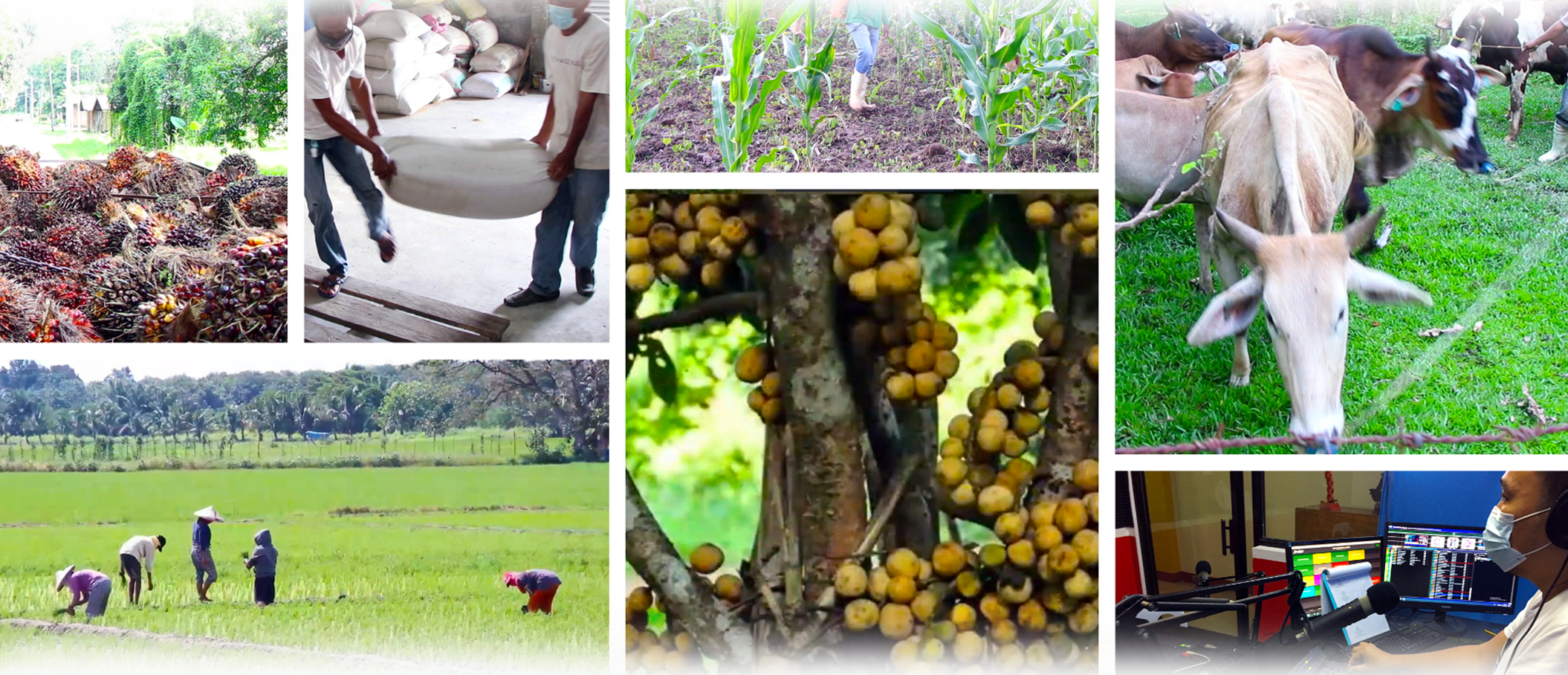
Goal
To effectively and efficiently operate and manage resource generation projects of the University and serve as models in entrepreneurial programs.
Objectives
- to generate local fund thru profit-oriented production projects;
- to provide appropriate venue for training of students enrolled in technical and/or special courses;
- to provide areas and facilities for conducting basic as well as applied researches;
- to provide informative materials to bolster the instruction and extension programs of the University; and
- to provide venues for commercialization of matured technologies.
Values
To effectively operate the program and projects, the personnel shall embody and practice the five core values of the University: Goodness, Responsiveness, Excellence, Assertion of Right, and Truth (GREAT).
Welcome to USM-RGES!
THE OFFICE OF THE VICE-PRESIDENT FOR RESOURCE GENERATION & ENTREPRENEURIAL SERVICES
The University Resource Generation and Entrepreneurial Services (URGES) is mandated to generate and sustain local income in support to the instruction, research, and extension functions of the University. In keeping with this mandate, the URGES, through its instrumentalities, is expected to effectively operate and manage income-generating projects (IGPs) and other entrepreneurial undertakings.
Operationally, the URGES executes its mandates and functions primarily through the Business Development Center (BDC) and University Hospital & Health Services (UHHS). The Production Economic Research Program (PERP) of the USM Agricultural Research Center (USMARC) and IGPs of the USM-Kidapawan City College (USM-KCC) are also contributing to the resource generation function of the University.
THE BUSINESS DEVELOPMENT CENTER
The Production Unit of the University shall be known as the Business Development Center (BDC) which shall be headed by a Director to be assisted by the project managers and Project Development Officers (PDO).
The BDC shall be under the Office of the Vice President for Resource Generation and Entrepreneurial Services. The Business Development Center (BDC) shall undertake resource generation activities, the income of which shall form part of the special trust fund of the University. It shall supervise and monitor all the activities of the various agricultural and non-agricultural business projects of the University and shall implement all pertinent policies, rules, and regulations promulgated by the URGES and approved by the University Board of Regents.
THE PROJECTS
The University has five clusters of income-generating projects or IGPs:
- The BDC-supervised agricultural IGPs which include corn, rice, oil palm, rubber, fruits, and land rentals;
- The BDC-supervised service IGPs consist of catering and accommodation, multimedia production, broadcasting, dormitories and canteen rentals;
- The UHHS-based IGPs such as hospital services, clinical laboratory, diagnostic x-ray laboratory and pharmacy;
- The USM-KCC IGPs which comprise bindery, dorm rentals, fruits, garments, library service, fast food center, transport service, and TESDA trainings; and
- The PERP IGPs composed of lanzones, banana, central laboratory, durian, corn, papaya, vegetables, legumes, biotech, goat, dragon fruit, herbs and spices, nursery and oil palm.
OPERATIONAL DIRECTIONS
The URGES shall maintain its resource-generating undertakings to sustain local income in support to the University’s 4-fold programs and projects in instruction, research, extension, and production; coupled with its aspiration to be the model in entrepreneurial program management and income generation in the coming few years.
This may be realized through the development and implementation of health and environment friendly, technologically competitive, and economically viable agri-based and service-oriented IGPs and other appropriate business or entrepreneurial undertakings; assurance of quality, affordable, and culture-sensitive products and services of these IGPs to intended customers; guarantee that these projects can be utilized for instruction, research, and/or extension by the University and other expected customers; and provision of venues for commercializing matured technologies in close coordination and collaboration with the extension unit of the University.
In order to ensure efficiency and effectiveness in the performance of its functions, the URGES shall adhere to principles that express public trust in pursuit of its mandate; and exhibit care to its workforce to anticipate institutional work dynamism and productivity, and to the customers through the offering of quality products and services to expect their optimum satisfaction on these products and services.
THRUSTS AND CONCERNS
- Agri-based Project Development
To pursue innovative projects that are competitive with non-government sectors or undertake joint ventures with private entrepreneurs such as fruit crops, corn seeds, rice, livestock and poultry production and high-value crops development (e.g. rubber and oil palm). - Food Production Strategies
To establish linkages with private firms in food processing and value-adding, expand its production for rice, corn, fruits, livestock and poultry products and offer for sale milled rice, seed corn, vegetables and meat supply the whole year round. - Welfare of Faculty, Staff and Students
To sell products and services at affordable prices and rates for the faculty, staff, students, alumni and the community. - Financial and Manpower Support
To provide financial assistance to academic units and other units of the University to strengthen their instruction, research, and extension, and resource generation functions. - Venue for Entrepreneurial Education in Agriculture and as a Showcase of Production Technologies
To serve as a hands-on training venue and showcase of production technologies for students, prospective entrepreneurs and interested stakeholders. - Employment Generation
To employ utility workers, laborers and skilled personnel including those hired on job order or contract of service status, especially during planting and harvesting activities in the project.
